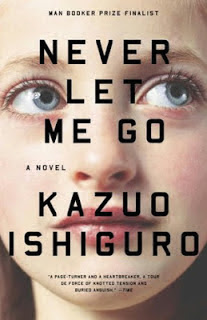 Her entry begins:
Her entry begins:Six Angry Girls by Adrienne KisnerAbout The Degenerates, from the publisher:
Millie, Veronica, Grace, Nakita, and Izzy are not living their best lives and the blame lies mostly with the Patriarchy. Dumped, cheated, overlooked, underestimated, ignored, and omitted these six girls fight back. The results are both heart-breaking and hilarious. This...[read on]
In the tradition of Girl, Interrupted, this fiery historical novel follows four young women in the early 20th century whose lives intersect when they are locked up by a world that took the poor,Visit J. Albert Mann's website.the disabled, the marginalized—and institutionalized them for life.
The Massachusetts School for the Feeble-Minded is not a happy place. The young women who are already there certainly don’t think so. Not Maxine, who is doing everything she can to protect her younger sister Rose in an institution where vicious attendants and bullying older girls treat them as the morons, imbeciles, and idiots the doctors have deemed them to be. Not Alice, either, who was left there when her brother couldn’t bring himself to support a sister with a club foot. And not London, who has just been dragged there from the best foster situation she’s ever had, thanks to one unexpected, life altering moment. Each girl is determined to change her fate, no matter what it takes.
The Page 69 Test: What Every Girl Should Know.
Writers Read: J. Albert Mann.
--Marshal Zeringue




























